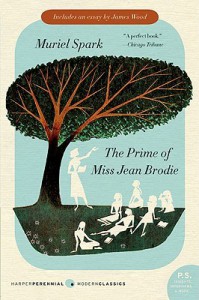Sarah's Library
I read pretty much anything, from fantasy (City of Stairs by Robert Jackson Bennett) to romance (Bared to You by Sylvia Day) to classics (Heart of Darkness by Joseph Conrad). The only genres I don't read are self-help and comic books/graphic novels.
The Prime of Miss Jean Brodie by Muriel Spark

14/09 - Reading this reminds me of reading Enid Blyton's Malory Towers or St Clare's school series, except with much more adult themes and dialogue. I wasn't alive during the 60s, so I don't really know how scandalised the readers and censors would have been by this book, but as I'm reading it I keep thinking "I can't believe the censors allowed some of this subject material to be published". Not that I have a problem with it personally (I mean check out my reading list and you'll see how little of a problem I'm likely to have with the themes in this book), but I get the feeling that that open-mindedness wouldn't have been shared by the majority of the public in 1961. I mean they still had seperate entrances for boys and girls at schools, how would they have dealt with 10-11 year-old girls discussing/writing stories about the sexual intercourse of a teacher? To be continued...
16/09 - Sandy's betrayal of Miss Brodie seemed to me like Miss Brodie was getting her just desserts. The way she treated some of the students who made up her 'set' - moving them around like chess pieces or as if they're her own personal dolls to be played with as she sees fit - it's not surprising that one of them turned against her. I don't exactly understand her reasons for wanting to set up Rose with painting master Mr Lloyd. I don't think Miss Brodie's motivations were properly, or at all, explained. She just seemed to have this long-term plan which involved Rose and Mr Lloyd having an affair (despite Rose's youth) but ended up with Sandy having the affair (which seemed to me to precipitate Sandy's betrayal), but the reader doesn't know why. I've always said I'm no good with themes that aren't glaringly obvious, so that might be the problem here, rather than the lack of explanation by Spark.







